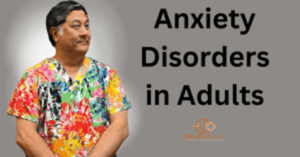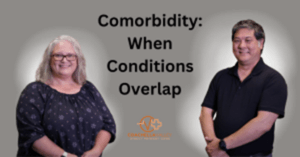Imagine navigating a crowded avenue—it feels like that in your brain if you’re living with Adult ADHD, Anxiety, or Depression. They aren’t brief distractions but major upheavals affecting life’s path significantly. Millions face this silent turmoil each year.
Did you know? Many cases remain undiagnosed despite its prevalence and impact on daily lives across Coachella Valley and beyond. Silence often overshadows their struggle due to stigma or lack of awareness.
The human brain is complex, but so should our approach to understanding it. Symptoms manifest subtly yet powerfully disrupt routines from missed appointments to forgotten conversations. But what happens when individuals take control back from their unruly neural pathways?
Get ready to hear real stories packed with expert insights. We’re not just aiming for awareness but inspiring action!
Coachella Valley Direct Primary Care
Frustration-free health care for the whole family. A monthly membership program designed for the busy Coachella Valley family to give you direct access to primary healthcare services so you can be healthy and active. Schedule a free consultation. 760-642-5549
Understanding Adult ADHD
Adult ADHD is a mental health condition that can impact every aspect of your life. It’s not just a childhood disorder. In fact, many adults struggle with ADHD and don’t even know it.
Symptoms of Adult ADHD
Struggling to stay focused? Feeling jittery or acting on impulse a lot? These might be signs of adult ADHD. Some common symptoms are:
- Poor concentration
- Hyperactivity
- Trouble completing tasks
- Disorganization
- Mood swings
Feeling like you’re the only one? Don’t stress; lots of adults have ADHD. The important thing is to get a proper diagnosis.
Diagnosing Adult ADHD
If you think you might have adult ADHD, the first thing to do is chat with a mental health professional. They’ll go over your symptoms and medical history, and some tests may be involved, too.
Getting a thorough evaluation is crucial because adult ADHD can often be mistaken for other conditions like anxiety disorders or depression. Only a skilled health professional can give you the correct diagnosis.
Treatment Options for Adult ADHD
The good news? Adult ADHD is treatable. The most effective approach combines medication and therapy.
If you’re struggling with focus or acting on impulse too quickly, stimulant medications might help. Meanwhile, behavioral therapy teaches practical skills like organizing tasks effectively and dealing calmly with stressors in daily life.
There’s no one-size-fits-all solution. Work with your doctor to find the right treatment plan for you. With proper care, you can thrive with adult ADHD.
Anxiety Disorders in Adults

Anxiety is a normal emotion. But when it’s constant or overwhelming, it could be an anxiety disorder. Anxiety disorders are the most common mental health concern in the U.S.
Common Anxiety Symptoms
Anxiety shows up in many ways. Do you:
- Worry excessively
- Feel restless or on edge
- Have trouble sleeping
- Experience racing thoughts
- Feel your heart pounding
If anxiety symptoms start to mess with your daily life, it’s a good idea to get some help.
Social Anxiety Disorder
Do you feel a wave of fear wash over you when you’re around people? This might be a social anxiety disorder. It’s more intense than simple shyness.
Social anxiety can make it tough to interact with others.
- Make friends
- Speak up at work
- Date or form relationships
- Attend social events
Getting help can really change things for you. Therapy, medication, or a mix of both are solid options. Don’t let social anxiety keep you from living your life.
Depression in Adults
Depression goes beyond just feeling sad. This serious mood disorder changes how you think, feel, and act in daily life.
Symptoms of Depression
Depression has many faces. Common symptoms include:
- Persistent sadness or emptiness
- Loss of interest in activities
- Sleep changes (too much or too little)
- Fatigue and low energy
- Feelings of worthlessness or guilt
- Trouble concentrating
- Thoughts of death or suicide
If you have several of these symptoms for more than two weeks, you may have depression.
Treating Depression
Depression can be effectively treated. The quicker you seek help, the better you’ll feel. Options for treatment include:
- Psychotherapy (talk therapy)
- Antidepressant medications
- Brain stimulation therapies
Self-care shouldn’t be overlooked. Make it a habit to exercise regularly, enjoy balanced meals, and connect with loved ones often. These tiny actions can significantly improve your mood.
Feeling overwhelmed? Reach out. You don’t have to battle depression by yourself.
Comorbidity: When Conditions Overlap

Did you know that adult ADHD, anxiety, and depression often overlap? It’s called comorbidity. In fact, the National Comorbidity Survey found that over 50% of adults with ADHD had an anxiety disorder.
Why the link? Experts think untreated ADHD may lead to anxiety and mood disorders. Living with untreated ADHD is stressful. Over time, that stress can take a toll on mental health.
Differentiating Symptoms of ADHD and Anxiety
ADHD and anxiety share some similar symptoms. Both can cause trouble completing tasks and poor concentration. So, how can you tell the difference?
One key is to look at the cause. ADHD symptoms are constant. They don’t come and go with stress. Anxiety symptoms tend to flare up with worry or fear.
Of course, it’s not always clear-cut. That’s why a thorough evaluation is essential. The right diagnosis is the first step to feeling better.
Impact on Daily Life
Dealing with adult ADHD, anxiety, or depression isn’t easy. These issues can touch every part of your life, affecting work and relationships alike.
Many people have a hard time juggling their daily tasks. Deadlines sneak up on you, and important appointments slip your mind. Even simple household chores can feel like climbing a mountain.
Sleep disorders are also common. Anxiety can cause racing thoughts that keep you up at night. ADHD can lead to restlessness and trouble winding down. Poor sleep then worsens symptoms in an endless cycle.
The Role of Family History
If mental illness runs in your family, don’t worry—you aren’t doomed. However, you do have a higher risk for conditions like ADHD, anxiety, and depression because they often have genetic links.
When one parent has ADHD, the odds are more than half that their kid will also develop it. Anxiety and depression follow similar patterns in families. But remember, genes don’t decide everything about our lives. Understanding your family’s health background helps you stay aware of potential issues.
Seeking Help from Mental Health Professionals
Think you might be dealing with adult ADHD, anxiety, or depression? Don’t wait to get support. Consulting a mental health expert will give you clarity on your condition and the best way forward.
An accurate assessment from a mental health professional sets the stage for effective treatments like medications or therapies that really work wonders. Don’t underestimate how much support groups can contribute with their added help and available resources.
You’re definitely not alone. Many adults are dealing with the same issues. With some helpful tools and a bit of support, you can tackle adult ADHD, anxiety, or depression and really start to thrive.
Key Takeaway:
Adult ADHD affects many aspects of life. Symptoms include poor concentration, hyperactivity, and mood swings. Proper diagnosis is crucial as it can resemble anxiety or depression. Treatment combines medication and therapy to manage symptoms effectively.
Conclusion
Our journey through Adult ADHD, anxiety, and depression has shown us these are far more than buzzwords. They highlight significant issues affecting countless people daily.
We uncovered how tricky it can be to pinpoint symptoms because they often overlap—like pieces in a never-ending puzzle. But remember, recognizing the problem is halfway to solving it. We discussed treatments, too—from therapy sessions that untangle your thoughts to medications that help keep them in order.
And let’s not forget about comorbidity—a fancy term for when you juggle more than one condition at a time. It’s like having guests who don’t get along but still need attention at the same party!
If there’s anything I want you to take away from our discussion on Adult ADHD, anxiety, or depression today—it’s hope and understanding. With proper support and strategies tailored just right for you or your loved ones, managing daily life becomes less daunting.
This isn’t just another chapter in some dusty textbook; this is about real people leading happier lives despite their mental health battles. So why wait? The path toward better mental wellness starts with one step: seeking help from professionals who care as much as I do about getting you back into life’s driver’s seat – refreshed and ready! Let me know if this journey resonates with you—I’m all ears for feedback or shared stories anytime!

